Is Beirut back from the brink? Despite challenges for the Lebanese government, the city is getting its buzz back
A new government is offering the long-beleaguered city a welcome opportunity for renewal.
“Did you see?” asks a friend when we arrive in Beirut. “There are now lanes on the airport highway and the traffic lights are working.” Driving into the Lebanese capital certainly feels different from when Monocle was last here. Back then, the road from the airport was flanked by billboards featuring stern-faced Hezbollah fighters. Today, in their place, cheerful banners declare a “new era for Lebanon”. Downtown, where the streets now echo to the sounds of construction rather than destruction, the ornate Ottoman façade of the Grand Serail, the Lebanese prime minister’s official residence, is one of many buildings shrouded in scaffolding.
“The population is looking for a new paradigm,” says Lebanon’s culture minister, Ghassan Salamé, surrounded by piles of books in his ministry office. “They are fed up with being told to be resilient, to smile.” Whatever it was that has finally moved the dial, there’s a sense that Beirut is beginning to show signs of a long-awaited recovery. This summer, the city’s beaches were packed but, more importantly, its pharmacies are fully stocked and electricity now sometimes stays on through the night. In April the country’s new finance minister signed a $250m (€215m) agreement with the World Bank to support renewable energy and grid resilience.
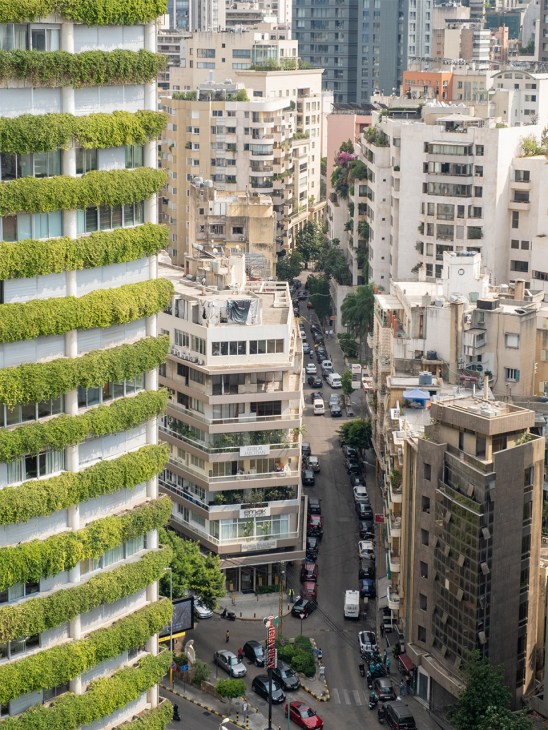
Lebanon could hardly have ended 2024 at a lower ebb. After months of heavy bombardment by Israel, the south of the country was flattened and swaths of Beirut’s suburbs lay in smoking ruin. Then, in early 2025, something unusual happened. After more than two years without a government, former army chief Joseph Aoun was appointed president. Though criticised for still being a serving commander, Aoun pushed through his choice of prime minister – Nawaf Salam, a veteran jurist and former president of the International Court of Justice – a few days after his election.
Things then began to move at great speed. Salam set about building a cabinet of politically unaffiliated ministers. Gone were the offspring of warlords and, in their place, the new prime minister appointed politicians with experience, talent and a seemingly genuine desire to improve the lot of their compatriots. Used to such governments taking months to form, Lebanese citizens at home and abroad were dumbfounded – in a good way. A 2025 Gallup poll recorded a 46-point increase (up to 62 per cent from 16) in public approval for the government, one of the largest such swings ever recorded in polling history.
Salamé is a returnee to government. The culture minister previously served in the same post between 2000 and 2003, during the heady post-civil-war days when Rafic Hariri’s reconstruction plans seemed to herald a brighter future. After two decades of serving high-level UN global missions, he’s back at the ministry’s helm. Looking ruefully around his office in the newly reopened Lebanese National Library, Salamé is fully aware of the colossal nature of the government’s challenge.
“Our problem is money; the public finances have gone bankrupt,” he says. “So, we’re being asked to do everything with no budget.” He and his colleagues face a breakneck climb on a fraying rope (the next general election is scheduled for May 2026) but he points out that what they have already achieved is extraordinary. “We have done more in six months than previous governments did in six years,” he says, his voice nearly breaking. “If people start to see real implementation, they’ll be more willing to trust us.”
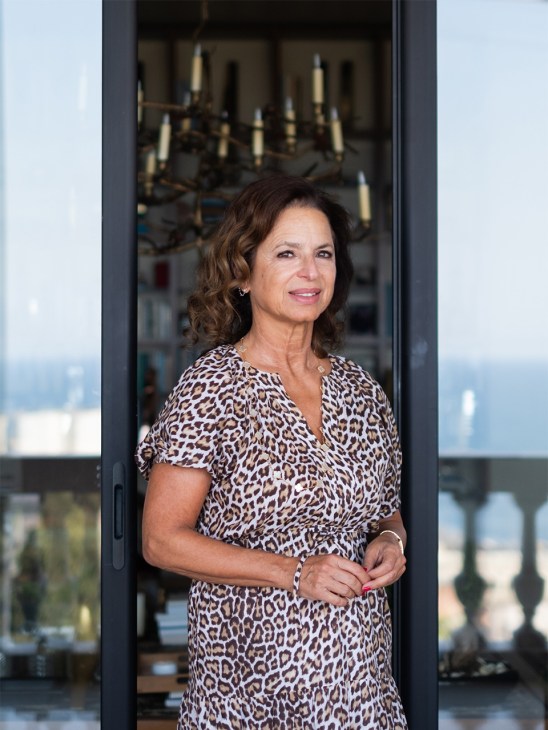
The new government’s good fortune wasn’t down to blind luck. Last year the geopolitical landscape in the Levant shifted significantly. Israel’s attack on Lebanon destroyed key parts of the country but also eroded the military might of Hezbollah and the grip that it had held over the country’s politics for decades. Meanwhile, the fall of Bashar al-Assad in neighbouring Syria eliminated a land route for supplying Hezbollah with Iranian weaponry and a new government was installed next door. Hundreds of thousands of Syrian refugees returned home as a result, easing pressure on Lebanon’s politics, economy and healthcare system. For once, it felt as though geo political forces were working in Lebanon’s favour.
Still, it would be naive to be too optimistic. While Beirut is getting its buzz back, the south of the country remains heavily bomb-damaged, with parts of it still occupied by Israel. Hezbollah meanwhile, is resisting the new government’s calls to disarm, prompting fears of conflict to come. Still, after years in which the country’s judiciary has seemed inert, the government has confirmed more than 500 new judges since coming into office.
In another positive sign, a budget was produced on time, allowing two major financial reform laws to be passed, reopening negotiations for an IMF deal. Most importantly for public confidence, ministers have started discussing how much and how soon Lebanese depositors will see financial compensation for the 2019 banking crash, in which the savings of many middle-class families were wiped out. Salamé and his colleagues hope to have some answers by January. “We have lost a lot of young talent to other countries,” he says. “They are watching now to see what we do.”
Crisis after crisis forced Lebanon’s youth to leave in search of opportunity and security. In 2021 there was a 450 per cent surge in emigration. Encouragingly, they have slowly begun trickling back. When the August 2020 port explosion took place, 34-year-old endocrinologist Ralph el Khoury and his colleagues at central Beirut’s Hotel Dieu Hospital had already been working on reduced salaries for months.
That day they treated hundreds of wounded patients for free. Traumatised, El Khoury had reached his limit. “The explosion was the trigger for me,” he tells Monocle. “I felt that the state had really failed us. I was afraid of spending my life in a country that was failing.” Many of his closest friends had already left and El Khoury knew that a stint in France could be a big boost to his career. So he moved to Paris, where he spent five years working on his specialism while learning how to augment healthcare using digital technologies such as AI.
In the French capital, El Khoury formed a close-knit group with other Lebanese expats. They would spend long nights wondering whether they would ever return home. But early this year the mood began to change. “For the first time in a long while, we could actually identify with the people in the government,” he says.
By August he felt the pull home, wanting to put his new skills to use. “It’s a big risk,” he says. “But I want to be here to rebuild my country, not just watch other people do it.” In the past year, hospitals have begun to receive regular medicine and equipment supplies, while the government has started planning the restructuring of healthcare to make it more accessible.
Lebanese architect Carole Azzi has also taken the leap homeward. The 38-year-old left for France a decade ago, thinking that she would only be away a year or two. Now that she’s back in the country of her birth, she is keen to use her expertise in cultural preservation to help Lebanon rebuild. “We’re not even starting from zero,” she says. “We’re hoping to reach zero and then build from there.”
Azzi is now involved in government rebuilding projects and hopes to teach a fresh generation of Lebanese architecture students. She says that she sees a new toughness in her young compatriots. “They are better than we were at that age,” she says. “They have had to be very inventive because those who couldn’t leave had to reinvent themselves here.”
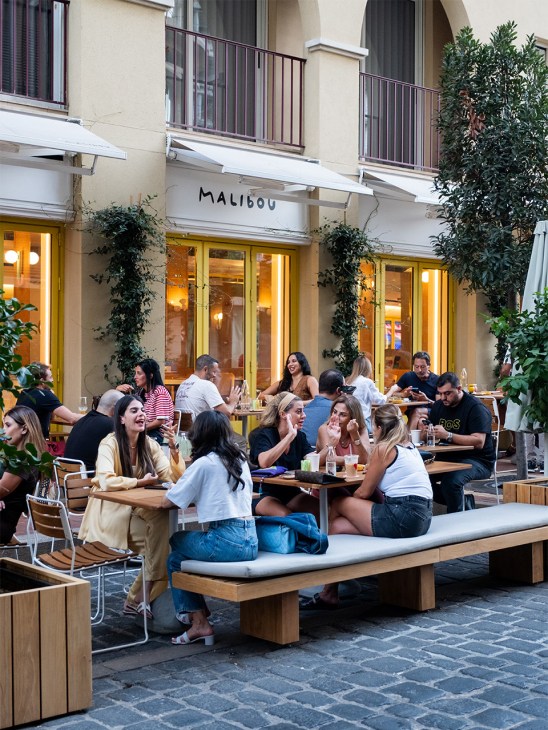
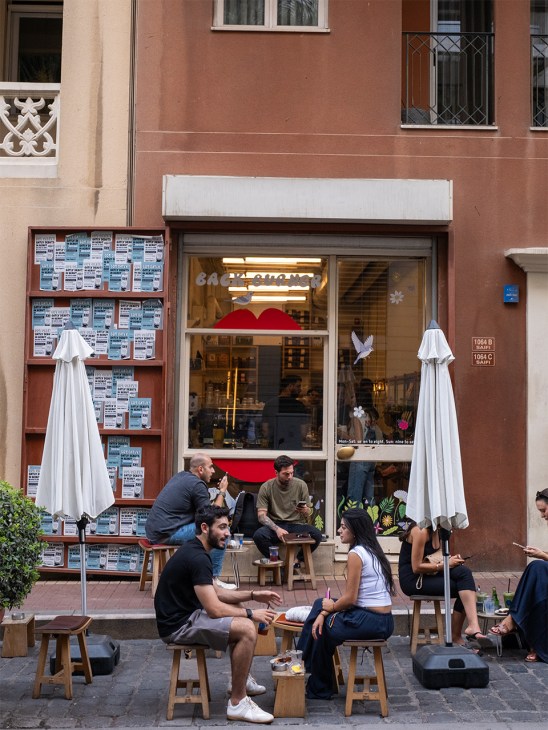
A distinctive characteristic of Beirut is the way that a hot neighbourhood can suddenly be ordained. In autumn 2025, there was a new cool kid in town: Saifi Village. With its salmon-pink façades, 24-hour electricity and Spanish moss tumbling from arched window frames, Saifi has long been considered an oasis in the centre of downtown. Once the preserve of yoga mums, it is now buzzing from dawn until dusk.
Pastel-hued restaurant Malibou sits on the corner of Mkhallissiye Street without a table to spare. “We’ve been busy since we opened in September 2024 but this summer we were packed every day,” says its manager, Hassan Abu Rashed. A quarter of all employment in Lebanon is in the hospitality sector. When purchasing power evaporated, so did the wages. In July the president signed off on a 56 per cent increase in the minimum wage across the private sector. Rashed’s pay packets are back to pre-2019 levels and customers are tipping generously.
Gulf Arabs have got the message that Beirut is again the place to be. The lifting of UAE travel warnings earlier this year was a huge boon for Lebanese tourism. Beirut-Rafic Hariri International Airport saw a million visitors in June and July – up 15 per cent on the previous year’s summer season – igniting hopes that the country’s tourism industry, which made up 19 per cent of its GDP before the 2019 crash, is back. The city was packed all summer, with crowds spilling out onto the streets, grasping cocktails and dancing to the strains of Fairuz and Umm Kulthum. It felt like old times.
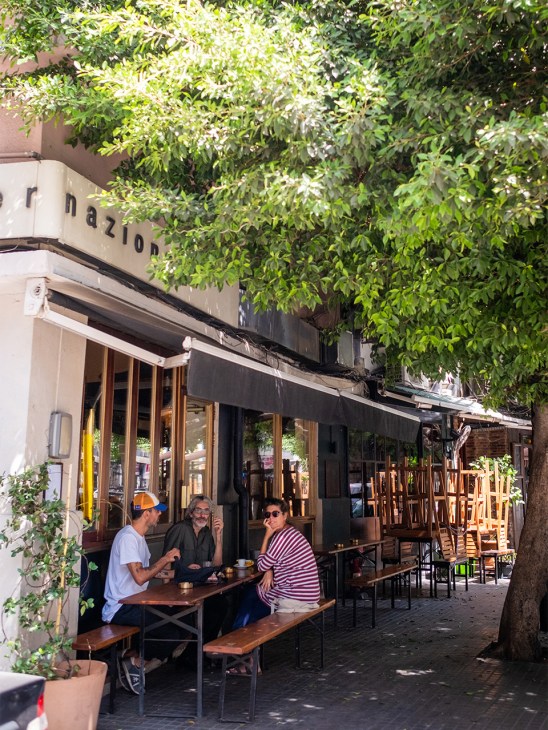
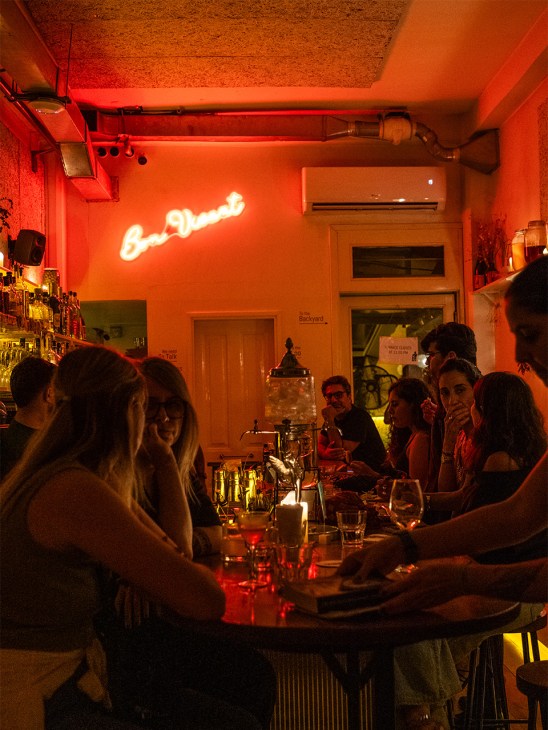
While the city has quietened down since the peak season, the spirit of those buoyant months has endured. Plane-loads of Middle Eastern tourists are descending on Beirut every weekend in search of delicious food and good times. Even short-term stability begets long-term investment. A highway intended to circumvent the dreaded traffic jams that swell on the seaside motorway north of the city every rush hour is finally under way.
The government also hopes to open tender on an airport near Tripoli in early 2026. Intended to complement Rafic Hariri, which is the only operational commercial airport in Lebanon, it will be well placed for the country’s most popular beach resorts. MEA, the national carrier, is launching a low-cost arm to ferry visitors to and from both of them.
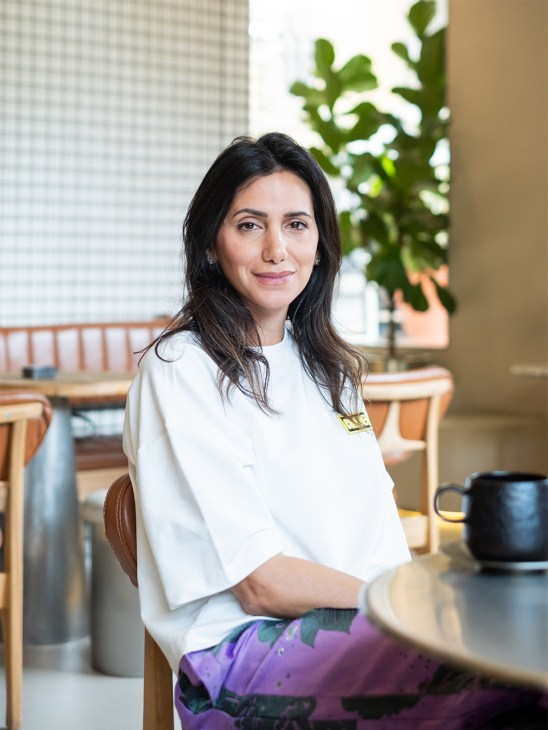
Rasha Halabi Assaf barely kept her Saifi Village-based boutique, Label Queen, going through the crisis. She has now opened two more businesses in the neighbourhood. Her café, Roff, serves high-end coffee to the cool crowd. Since starting it in January, Assaf says that it has practically marketed itself. “This year was a big change,” she says. “Brands are launching; hotels are opening. People are optimistic and investing again.” However, she says that the government needs to step in and support local entrepreneurs in the wake of the crisis.
Fellow business owners feel that the private sector is carrying the entire load of the economy, while facing heavy taxes for little return and high costs on imported goods. As a result, they are prioritising low-risk cash investment in retail and hospitality. “If anything happens, the losses are easier to absorb,” she says. “The banking system is there but we don’t trust it yet.”
In 2019, Lebanon’s youth took to the streets to demand change from its leaders. Now they’re coming back to make it themselves. Ghassan Haddad left the country 20 years ago after graduating from high school and worked as a consultant in Europe and the Gulf. When he was first asked to return to serve as chief of staff for the new tourism minister, Laura Lahoud, he was reluctant. But his family convinced him not to pass up the opportunity to be part of Lebanon’s next chapter. Lahoud says that her favourite part of her job is working with younger people such as Haddad. “They’re faster at everything, with a fresh outlook,” she says. “I learn a lot from them.”
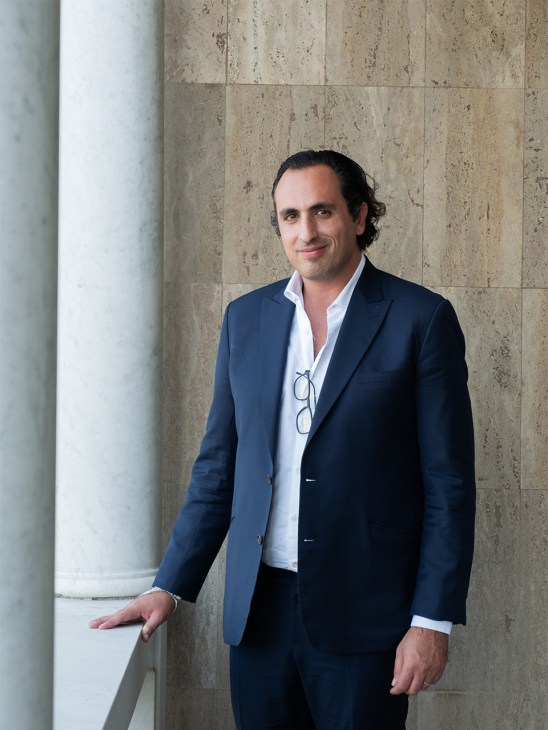
Unfortunately, not everyone is so keen. Like many of his peers, Haddad is having to push hard to change mindsets that are still stuck in the past. Modern digital skills have yet to permeate the top of government (aides still write phone messages down on scraps of paper) and increasing efficiency will mean a complete overhaul. “People tell me, ‘That’s not how we do things here,’” says Haddad. “I say, ‘That’s exactly the point.’ The people want change but they don’t want reform.”
It takes a huge leap of faith to give up on the status quo in return for an unknown benefit at some point in the future. That’s what this government is asking of a public that has had little reason to trust its leaders in decades. It’s a sentiment that Haddad shares with many of his youthful colleagues. They often gather in the evening to share their ideas, after a long day spent working to bring their country’s infrastructure up to speed.
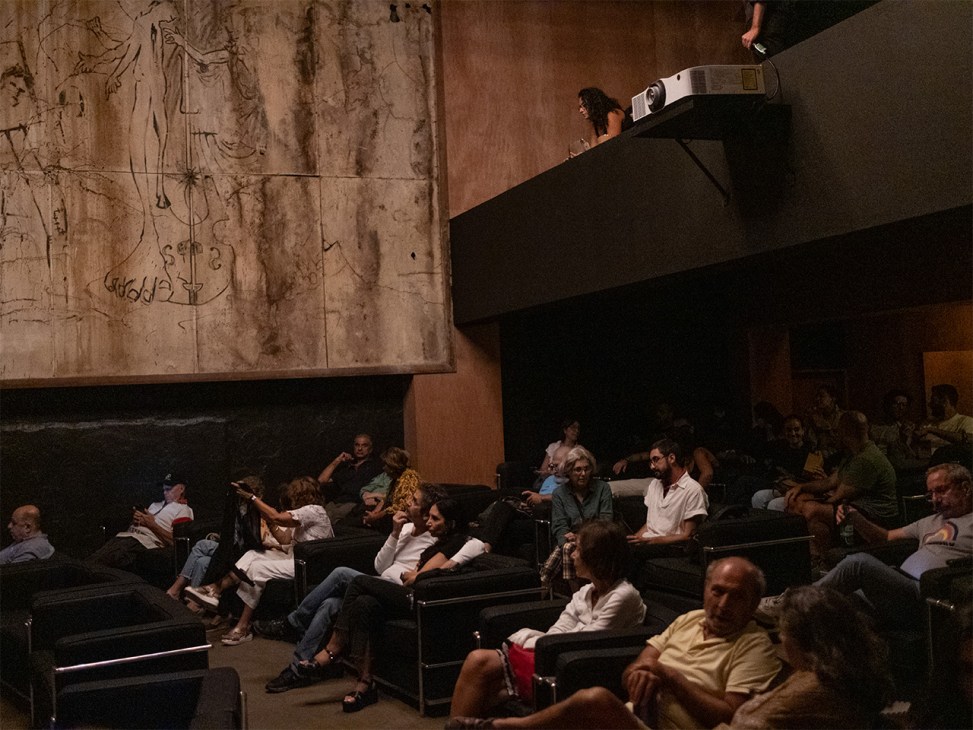
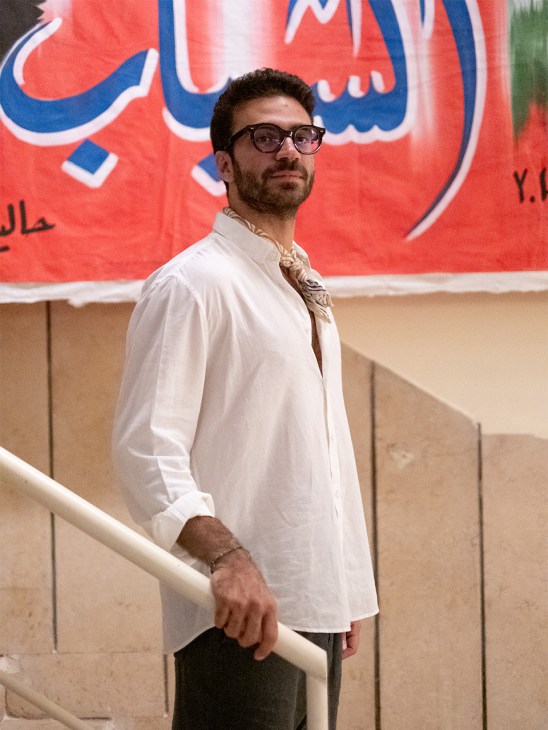
In the lobby of Bourj Hammoud’s Cinema Royal, young women drink beer as they wait for a free public screening of 1994 film Once Upon a Time in Beirut, put on by the culture ministry. “How was today?” one asks her friend. “Long, like every day at the moment,” she says. Then she smiles and adds, “But it’ll be worth it.”
This summer there were many such screenings and museum nights. For a few weeks, Beirut lived up to its mid-century moniker as the Paris of the Middle East. Lahoud’s next aim is to project middle-class Beirut’s success to other corners of the country. Her ministry has launched a tourism app intended to direct visitors to less frequented areas.
In common with many of her new colleagues, she never worked in politics before this and knows that it will take time to build trust. None of the current cabinet ministers plans to run in the next election, so they can focus on making meaningful, if difficult, decisions, she says. “We have tremendous natural wealth but our greatest wealth is our people,” she says, looking out from her balcony at the city below. “They find a way to continue.”
Lebanon’s political evolution
Behind today’s optimism is a complex recent history. In 1989, a power-sharing agreement between Lebanon’s 18 registered religious groups was intended to end the long civil war and prevent further sectarian violence. Instead, it encouraged gerrymandering, partisanship and cronyism. The same warlord families that had fought the conflict – which lasted from 1975 to 1990 – rigged the system in their favour and have spent the decades since running the country into the ground.
Government formation would typically take months, sometimes even years; indeed, in the past decade, Lebanon has spent longer without a functioning administration than with one. The country has endured much of recent history languishing under hamstrung caretaker governments. A 2024 survey by Arab Barometer found that 90 per cent of Lebanese people severely distrusted their government and its leaders.

Meanwhile, Hezbollah, a Shia militia that rose to prominence following Israel’s 1982 invasion of Lebanon, has become a shadow state, with its own army, political party and bureaucracy based in its southern stronghold. Unlike other Lebanese militias, the group was allowed to keep its weapons after the civil war ended because of the threat still posed by Israel.
UN Resolution 1701, which ended the war with Israel in 2006, was intended to reverse that; under its terms Hezbollah would disarm and make way for the mixed-sect Lebanese Armed Forces, while Israel would withdraw behind the Blue Line, the two countries’ official border, and respect Lebanon’s sovereignty. Neither complied. This summer, the new government in Beirut discussed giving Hezbollah a deadline of the end of this year for it to disarm. The group’s compliance will have a huge bearing on whether or not the current wave of optimism in Lebanon continues into 2026.
Back to Beirut
A rundown of the key events in Lebanon’s complex history.
1.
Place des Martyrs, downtown Beirut in the 1960s. Before the civil war, the city was known as the Paris of the Middle East.

2.
The Lebanese Civil War, which lasted from 1975 to 1990, led to about 150,000 deaths and the emigration of a million people from Lebanon. The war devastated swaths of the capital.

3.
Crowds in the city celebrate the 1989 Taif Agreement that paved the way for peace. The agreement formalised power sharing between Lebanon’s 18 registered religious groups.

4.
Rafic Hariri served as Lebanon’s prime minister between 1992 and 1998 and then again between 2000 and 2004. In 2005 he was assassinated in Beirut by a suicide van bomb. Hariri’s death triggered further political upheaval.

5.
Riad Salameh was the governor of the Bank of Lebanon from 1993 to 2023. Initially feted for his monetary policy, after the country’s banking crisis in 2019 he was accused of siphoning off millions of depositors’ savings. In 2024 he was charged with money laundering, embezzlement and illicit enrichment.

6.
The 2020 Beirut port explosion was caused by the ignition of 2,750 tonnes of ammonium nitrate that was being stored in a waterside warehouse. The explosion caused at least 218 deaths, thousands of casualties and billions of dollars’ worth of damage.

7.
The new Lebanese government poses outside the Baabda Presidential Palace in February 2025. President Joseph Aoun and Prime Minister Nawaf Salam stand in the centre.

Reform or ruin
The turbulent fortunes of Lebanon’s economy.
Following Lebanon’s civil war, Riad Salameh, the governor of the Bank of Lebanon, was feted as a wizard of monetary policy. In the 1990s and 2000s, scant regulation encouraged investors from across the Middle East to flock to the country, while Lebanon’s unique reliance on remittances from its diaspora, coupled with a mounting yearly trade deficit, encouraged a high-interest rates policy.
In 2019, however, as Gulf depositors began to move their money elsewhere and the Syrian refugee crisis reached its peak, heavy government subsidies on daily goods and services became unsustainable. The country’s inflated banking sector, which was reliant on high interest rates and money laundering, was ill prepared to handle adverse international circumstances. Desperate Lebanese depositors clawed at the doors of banks, begging for life savings whose value dwindled by the hour. Petrol, electricity and medicine all but disappeared and the Lebanese lira had soon lost 97 per cent of its value (from 1,500 liras to the dollar to 180,000).
Successive governments begged the IMF for help but could not enact the financial reforms required to access billions of dollars worth of aid (see page 69). The money is still waiting to be distributed, along with a further €11bn promised by European nations at 2018’s Cedre Conference. The new government hopes that its rapid financial reforms, alongside a major foreign investment conference held in Beirut in November 2025, will be enough to access it and rebuild foreign allies’ faith.
The 74-year-old Salameh, meanwhile, who has recently been released on bail, stands accused of siphoning off millions of dollars into foreign bank accounts. His bail had been posted at about €15m – the highest ever handed down in Lebanon’s history.


